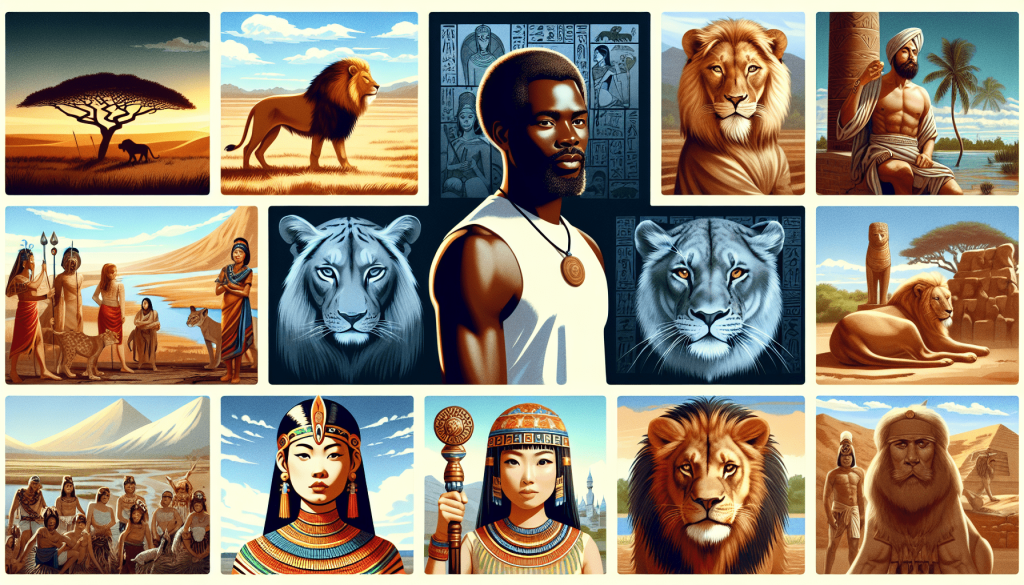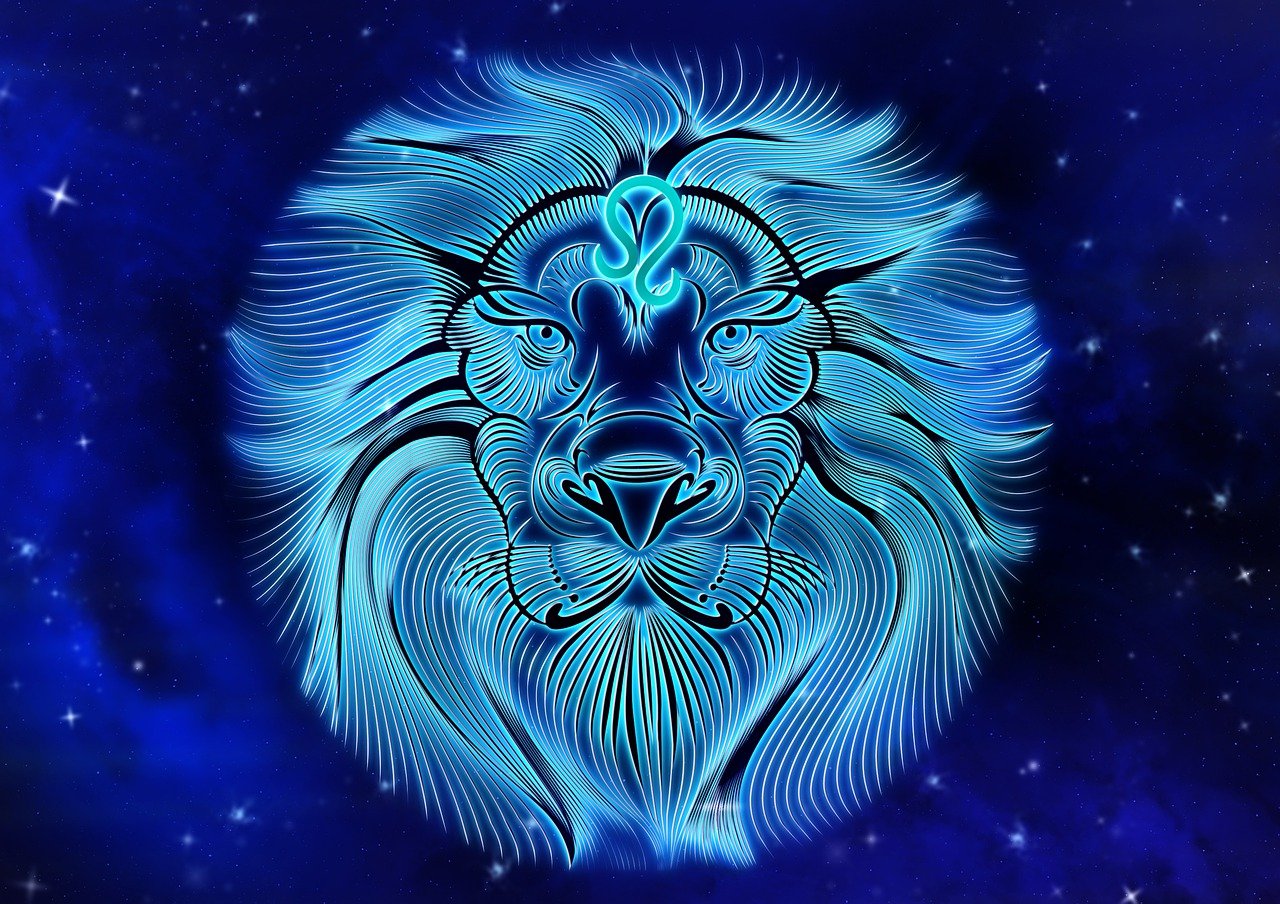Imagine a majestic creature, embodying power, courage, and strength; the king of the jungle. The lion, revered for centuries, holds deep symbolism across diverse cultures around the world. From ancient civilizations to modern societies, this regal beast has captivated the human imagination. Exploring the lion’s symbolism from a global perspective, we uncover intriguing insights into the deep-rooted meanings and cultural significance associated with this magnificent animal.
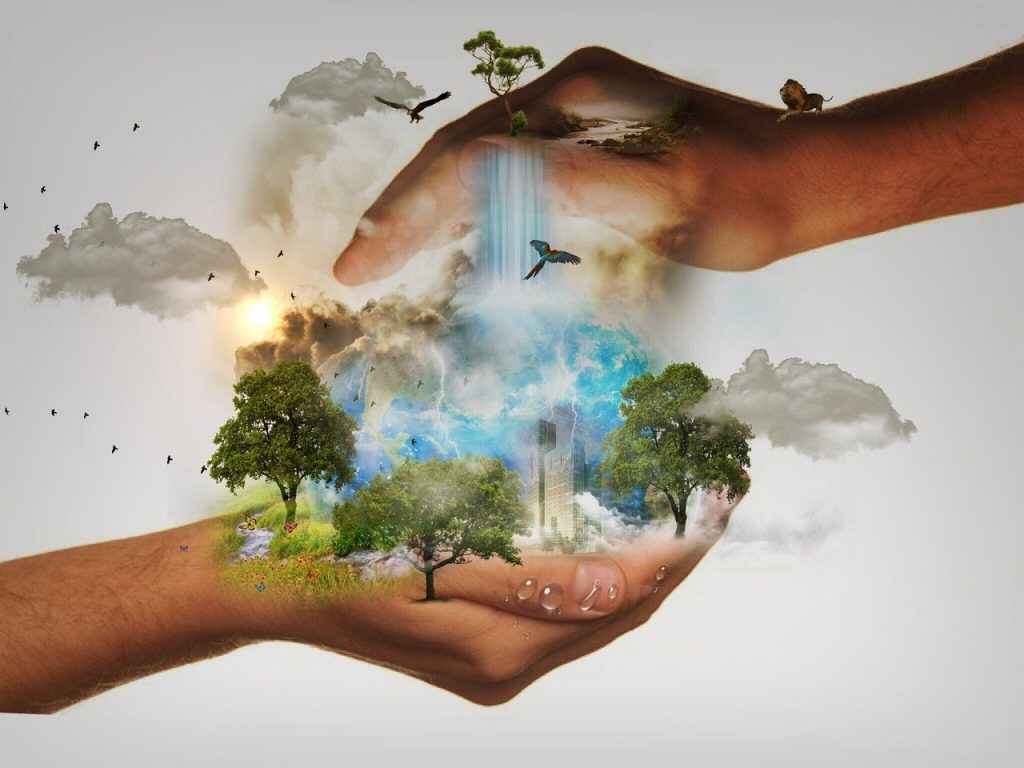
Africa
Africa is a vast and diverse continent, rich in history and cultural heritage. Lions, being one of Africa’s most iconic animals, hold deep symbolism in many African societies. From ancient Egypt to the Maasai and Zulu tribes, lions have been revered and respected across various cultures.
Ancient Egypt
In ancient Egypt, lions were associated with power, royalty, and protection. The lion-headed goddess Sekhmet, known for her fierce nature, was believed to be a guardian and protector of the pharaohs. Lions were depicted in hieroglyphs, sculptures, and paintings, symbolizing strength and authority. Lions also played a significant role in Egyptian mythology, often representing the fierce and regal qualities of the gods.
Maasai Tribe
The Maasai tribe, known for their traditional semi-nomadic lifestyle in East Africa, holds a deep reverence for lions. They consider lions as symbols of bravery, strength, and leadership. Lions are associated with the warrior class of the Maasai, and killing a lion is considered a rite of passage for young Maasai warriors. However, in recent years, the Maasai have shifted their perspective and have become prominent advocates for lion conservation, acknowledging the importance of preserving these majestic creatures.
Zulu Tribe
The Zulu tribe, one of the largest ethnic groups in South Africa, also holds lions in high regard. In Zulu culture, the lion represents courage, royalty, and nobility. The legendary Zulu king Shaka was often referred to as the “Lion of the Zulu” due to his leadership qualities and fearlessness. Additionally, lion hides are used as a display of power and wealth during important ceremonies and rituals. The lion’s majestic presence and strength make it an important symbol within Zulu society.
Asia
As we move to the continent of Asia, we discover different perspectives on lion symbolism in cultures such as India, China, and Japan.
India
In Indian culture, lions are considered divine creatures and are associated with various deities. The Hindu goddess Durga, known for her fierce form, is often depicted riding a lion, symbolizing power and protection. The lion is also a symbol of Lord Vishnu and is associated with his avatar, Narasimha, a half-lion, half-human deity. Lions are widely revered and respected in India for their strength, bravery, and regal demeanor.
China
In Chinese culture, the lion is seen as a guardian and protector. The image of two lions, often seen in front of temples and homes, is believed to ward off evil spirits and bring good luck. Lion dances, performed during festivals and celebrations, are a cherished cultural tradition in China. The lion’s significance in Chinese culture reflects its association with power, courage, and prosperity.
Japan
Japanese culture has its own unique interpretation of lion symbolism. The Shishi, also known as the “lion-dog,” is a popular mythical creature in Japanese folklore. These lion-like creatures are often depicted as stone statues guarding the entrances of shrines, temples, and castles. The Shishi represents protection from evil spirits and symbolizes strength, dignity, and good fortune. This symbolism has influenced various art forms in Japan, including traditional Noh theater and Kabuki performances.
Europe
As we explore the diverse cultures of Europe, we encounter ancient Greece, England, and France, each with their distinct perspectives on lion symbolism.
Ancient Greece
In ancient Greece, lions were associated with the mythical hero Hercules, who was often depicted wearing a lion’s skin as a symbol of his immense strength and courage. Lions also had significant religious symbolism, representing power and majesty. The Nemean Lion, a formidable creature slain by Hercules as one of his twelve labors, became a symbol of victory and conquest.
England
The lion has been a central symbol of England for centuries. Known as the “king of the jungle,” the lion represents royalty, courage, and strength. The royal coat of arms of England features three golden lions on a red background, known as the “Lion Passant Guardant.” This emblem has deep historical and heraldic significance, representing the monarchy and the British identity.
France
In France, lions are associated with the majestic figure of the lion-hearted King Richard I, also known as Richard the Lionheart. His courageous and fearless nature earned him the lion moniker, symbolizing bravery and chivalry. Lions are prominently featured in French architecture, sculptures, and coat of arms, representing power, nobility, and the royal lineage.
North America
North America is rich in indigenous cultures, and the Native American tribes and civilizations such as the Aztecs and Mayans have their own unique interpretations of lion symbolism.
Native American Tribes
Various Native American tribes hold diverse beliefs about lions, depending on their geographical location. In some tribes, the mountain lion, also known as the cougar or puma, is revered as a spirit guide representing strength, agility, and protection. The lion’s hunting prowess and solitary nature are admired and respected by many Native American cultures.
Aztecs and Mayans
In the ancient civilizations of the Aztecs and Mayans, lions were not native to their lands. However, they depicted these majestic creatures in their art and mythology, often symbolizing power and strength. The Aztecs associated lions with their sun god Huitzilopochtli, while the Mayans depicted lions on their carvings and garments as a representation of courage and nobility.
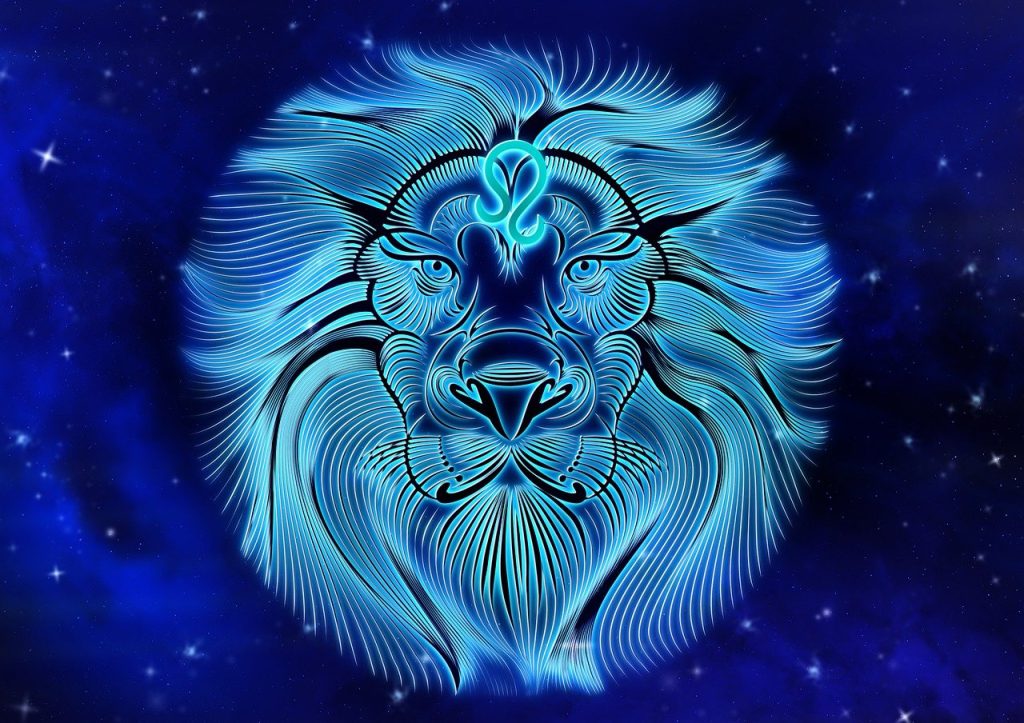
South America
South America is home to diverse cultures, including the Inca Empire and various tribes residing in the Amazon rainforest. Each has its own unique connection to lion symbolism.
Inca Empire
The Inca Empire, located in the Andes Mountains of South America, revered the puma as the “brother of the sun” and a symbol of strength and leadership. The puma was associated with the Inca ruler, representing courage and divine authority. The Inca people deeply respected the puma’s fierce nature and considered it a sacred animal, embodying the qualities they admired in their leaders.
Amazon Rainforest tribes
The tribes inhabiting the Amazon rainforest have a deep spiritual connection to the wildlife around them, including the jaguar, often referred to as the American lion. Jaguars are revered for their strength, agility, and mystic qualities. They are believed to possess supernatural powers and are often depicted in tribal art and rituals, representing the powerful forces of nature.
Middle East
The Middle East is known for its rich cultural heritage, and lion symbolism has deep roots within Persian culture and Islamic symbolism.
Persian Culture
Lions have long held a revered status in Persian culture. Ancient Persia, present-day Iran, considered the lion as a symbol of royalty, power, and courage. The Persian Empire used the “Winged Lion” as a royal symbol, depicting a lion with wings to represent divine protection. Lions were also featured in Persian mythology, with stories of heroic lion slayers showcasing bravery and valor.
Islamic Symbolism
In Islamic symbolism, the lion represents courage, bravery, and the divine power of Allah. Lions are often depicted guarding entrances to mosques, symbolizing protection. Islamic traditions tell stories of lions accompanying important prophets and demonstrating acts of bravery. The lion’s ferocity and strength are celebrated as attributes to be emulated and admired.
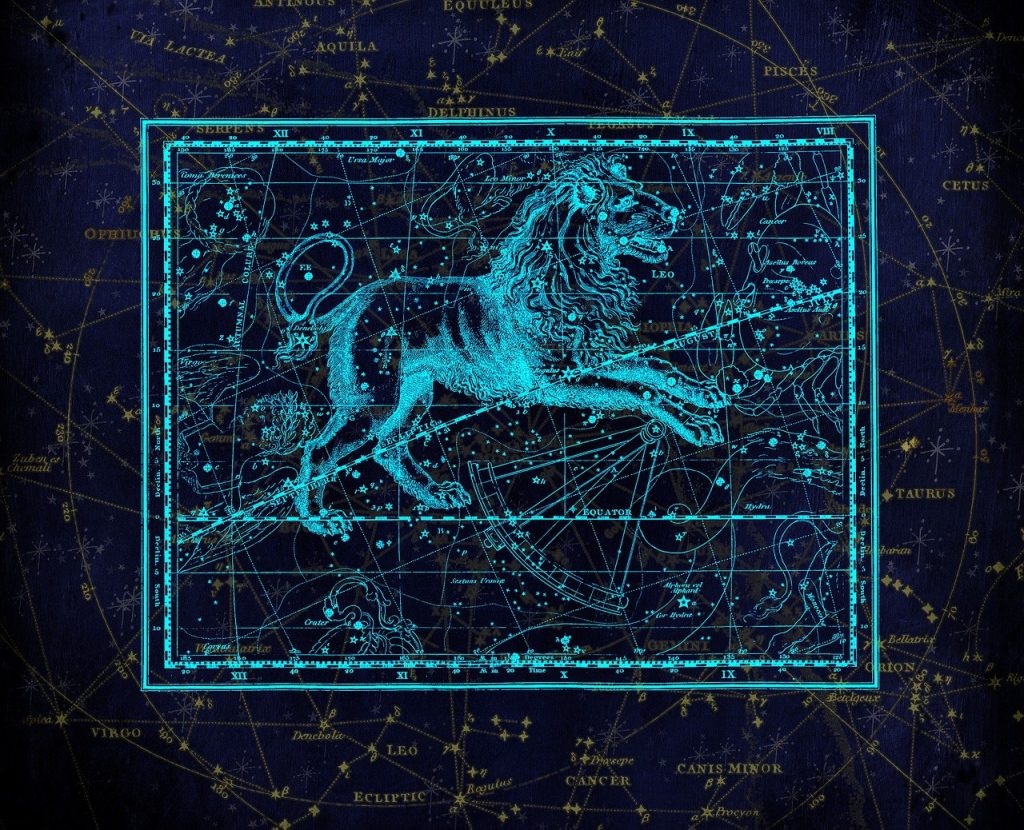
Oceania
Oceania encompasses diverse cultures, and the Aboriginal and Maori cultures provide insight into the symbolic significance of lions in their respective societies.
Aboriginal Culture
In Aboriginal culture, the lion is not native to Australia. However, the concept of spiritual totems is integral to Aboriginal beliefs. Totems are animal or plant spirits that guide and protect individuals or kinship groups. While the lion is not a specific totem in Aboriginal culture, it serves as a symbol of strength, power, and protection, aligning with the broader significance of totems within Aboriginal spirituality.
Maori Culture
The Maori people of New Zealand have a rich cultural and spiritual connection to the lion’s distant cousin, the “Maui’s Dolphin.” These dolphins are considered sacred in Maori culture, symbolizing protection, harmony, and guardianship of the ocean. The Maui’s Dolphin serves as a reminder of the importance of preserving the environment and the interconnectedness of all living creatures.
Religious Symbolism
Lions also hold significant symbolism in various religions worldwide, including Christianity, Buddhism, Hinduism, Sikhism, and Judaism.
Christianity
In Christianity, the lion is often associated with Christ, representing his divine and regal nature. Lions are mentioned in the Bible as symbols of strength, courage, and protection. The image of a lion is often included in Christian artwork and symbolism to represent Jesus’ authority and triumph.
Buddhism
In Buddhist art and teachings, the lion represents bravery, protection, and determination. The Buddhist emblem “The Lion’s Roar” symbolizes the power of enlightenment, as the roar of a lion is loud and can be heard from great distances. The presence of a lion is often depicted in Buddhist temples and statues, evoking a sense of courage and strength in the face of spiritual obstacles.
Hinduism
In Hindu mythology, the lion is associated with various gods and goddesses. The lion is the divine steed of the goddess Durga and also represents the celestial animal mount of Lord Vishnu’s avatar, Narasimha. The lion exemplifies fearlessness, power, and regal qualities, reflecting the deities it is associated with in Hindu culture.
Sikhism
In Sikhism, the lion is a prominent symbol in the Khanda, the central emblem of the faith. The lion represents courage, sovereignty, and spiritual strength. It symbolizes the Sikh’s duty to protect the innocent and fight against injustice. The Sikh warrior tradition, known as Sant Sipahi, is often associated with the lion, signifying the qualities of bravery and fearlessness.
Judaism
In Jewish tradition, the lion is closely associated with the Tribe of Judah, one of the twelve tribes of Israel. The lion’s image is seen as representing leadership, strength, and the messianic figure. The lion of Judah is mentioned in the Hebrew Bible and is considered a symbol of the Messiah, who is believed to be a descendant of King David from the tribe of Judah.
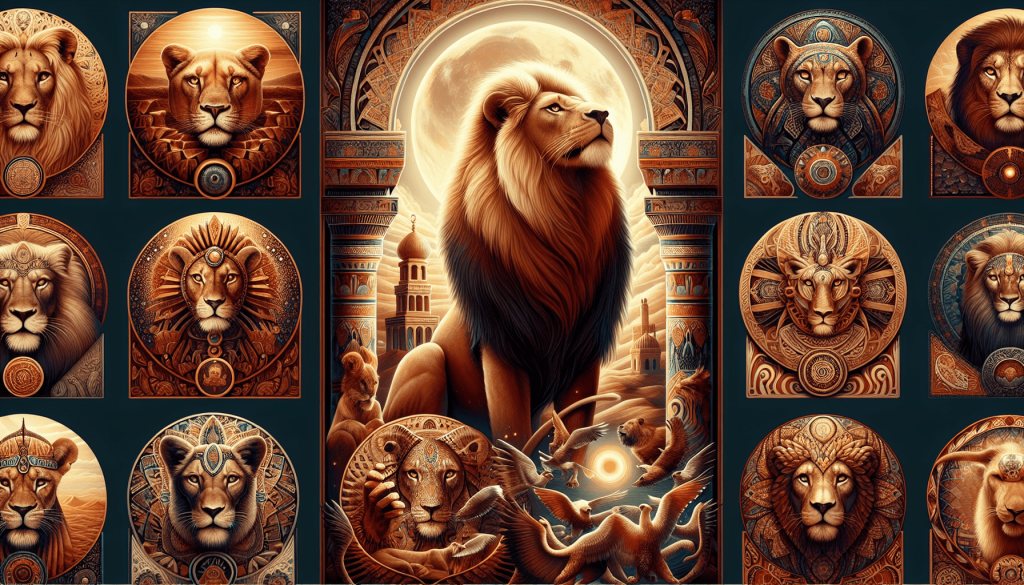
Mythology and Folklore
Mythology and folklore around the world often feature lions as significant characters, each with its own unique stories and interpretations.
Greek Mythology
Greek mythology is replete with stories involving lions, with the Nemean Lion being one of the most famous mythological creatures. The Nemean Lion, slain by Hercules as one of his twelve labors, became known for its invincible hide. Lions also appeared in the myths of other Greek gods, such as Dionysus and Apollo, manifesting strength, power, and divine connections.
Norse Mythology
In Norse mythology, the lion does not play a prominent role compared to other mythological creatures. However, the concept of courage, strength, and valor associated with lions aligns with the Viking warrior ethos. The symbolism of the lion in Norse mythology may have been less pronounced but is still associated with similar valiant qualities revered by Viking warriors.
Chinese Mythology
In Chinese mythology, the lion holds a significant place. The legendary creature known as the “Chinese guardian lion” or “Foo Dog” is often depicted in traditional Chinese art and architecture. These lion-like creatures, with their protective qualities, were believed to ward off evil spirits and bring good fortune. They are symbols of power, strength, and prosperity, reflecting the deep-rooted mythological beliefs within Chinese culture.
Indian Mythology
Indian mythology features many mythical creatures, but lions play a limited role. However, the lion-headed goddess, Narasimha, as an avatar of Lord Vishnu, is an essential figure in Hindu mythology. She is half-lion, half-human, representing the triumph of good over evil. Narasimha’s ferocity and courage embody the qualities associated with lions in Indian mythology.
African Folklore
In African folklore, lions often appear as heroes or symbols of strength and wisdom. Numerous folktales depict lions as wise rulers or cunning tricksters, reflecting the respect and admiration for these majestic creatures within African cultures. The lion’s characteristics and behaviors are associated with qualities that humans aspire to possess, such as bravery, leadership, and resilience.
Modern Symbolism
Lions continue to hold symbolic significance in modern times, appearing in national and sports symbols, company logos, and popular culture references.
National and Sports Symbols
Numerous countries around the world have chosen the lion as an emblematic symbol in their flags, crests, or national emblems. For example, the lion is featured prominently in the national emblems of countries such as Sri Lanka, Belgium, Luxembourg, and many more. Additionally, the lion has become a symbol in various sports teams, evoking ideas of strength, power, and competitiveness.
Company Logos
Lions have been featured in the logos of numerous companies and organizations, representing qualities such as strength, trustworthiness, and reliability. Examples include MGM Studios, whose roaring lion logo has become an iconic symbol in the film industry, and the Lion’s Club International, a global service organization that uses the lion as its emblem to signify humanitarian values.
Pop Culture References
Lions have made appearances in various forms of popular culture, including literature, films, and art. The Lion King, a beloved Disney film, depicts lions as characters with noble qualities, emphasizing themes of leadership and the circle of life. Additionally, lions have been featured in literature and art pieces as symbols of strength and courage, transcending cultural boundaries and resonating with a global audience.
In conclusion, lion symbolism spans across continents, cultures, and millennia, exhibiting a vast and diverse tapestry of interpretations. Whether seen as representations of power and nobility, guardians and protectors, or fierce and courageous creatures, lions continue to captivate our collective imagination, reminding us of the eternal fascination humans hold for these magnificent animals.
